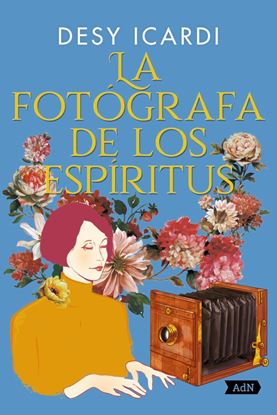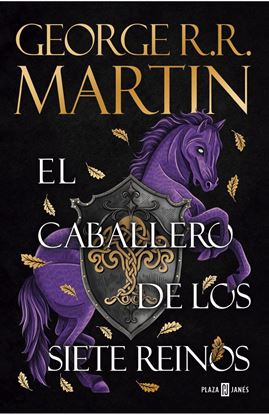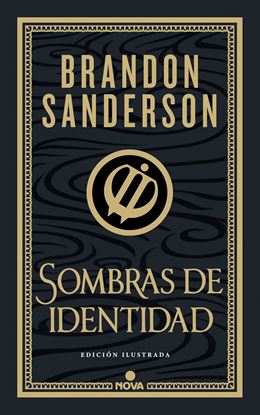

LA FOTOGRAFA DE LOS ESPIRITUS
A principios del siglo XX, en Turín, el abogado Edmondo Ferro trabaja con desgana en el prestigioso bufete de su familia, aunque a lo que le gustaría dedicarse en realidad es a la lectura de novelas. Mientras tanto, en los salones de la alta burguesía de la ciudad, que se ve obligado a frecuentar, la nueva moda son unas médiums a las que se trata como a divas, y que a menudo van acompañadas de fotógrafos que afirman ser capaces de inmortalizar a los espíritus del más allá.
Al mismo tiempo, en los campos de los alrededores, muchas personas deciden emigrar; es el caso de Pia, una humilde chica a la que un fotógrafo convence, con la promesa de que así podrá ayudar a su familia, de que se embarque rumbo a Argentina, junto con otras jóvenes campesinas, con la ilusión de reunirse allí con un prometido al que nunca ha visto y al que nunca verá.
1,850
1,388
EL CABALLERO DE LOS SIETE REINOS (C.H.F)
Un siglo antes de Juego de tronos, dos héroes insólitos recorrieron Poniente...
El joven Ser Duncan el Alto, un ingenuo pero valiente caballero errante, sobresale por encima de sus rivales en estatura, aunque no en experiencia. Le acompaña su diminuto escudero, un muchacho llamado Egg, quien debe mantener en secreto su verdadera identidad ante todos aquellos que se crucen en su camino.
Puede que nadie hubiera esperado ver a estos inesperados compañeros convertidos en héroes, pero el destino tiene reservado para ellos un camino plagado de poderosos enemigos, intrigas palaciegas y hazañas de leyenda.
1,850
1,388
TAN POCA VIDA (10 ANIV.) TD
Cuatro compañeros de universidad se trasladan a Nueva York, donde solo cuentan con su amistad y su ambición para abrirse camino. Willem es guapo, amable y quiere ser actor; JB es un pintor ingenioso y a veces cruel, dispuesto a destacar en el difícil mundo del arte; Malcolm es un arquitecto soñador, y Jude es el joven retraído, brillante y enigmático que pronto se convertirá en el epicentro del grupo. A lo largo de varias décadas, sus relaciones se harán más íntimas y profundas, al tiempo que se teñirán de adicción, éxito y orgullo. Sin embargo, su mayor desafío será el propio Jude, herido para siempre por una traumática infancia.
Para saber qué dicen y callan los hombres, de dónde viene y adónde va la culpa, cuánto importa el sexo, a quién podemos llamar amigo y, finalmente, qué precio tiene la vida cuando ya no tiene valor aquí está Tan poca vida: el libro icónico de las nuevas generaciones, considerado mejor novela del año por la prensa internacional, finalista del Booker Prize y del National Book Award, y uno de los mayores fenómenos literarios de la última década.
1,850
1,388
SOMBRAS DE IDENTIDAD (2) (ED. ILUSTRADA)
La segunda era continúa con una intriga política llena de magia. Waxillium Ladrian y su socio Wayne se enfrentan a una enemiga inaudita tras el brutal asesinato del hermano del gobernador, una kandra rebelde que ha perdido el juicio y ya no obedece al nuevo dios de Scadrial, Armonía.
Mientras Wayne y Marasi intentan frustrar las amenazas contra el gobernador y evitar que la ciudad estalle en revueltas multitudinarias, Wax da caza a una asesina capaz de utilizar cualquier poder y de hacerse pasar por cualquiera. Pero él mismo se verá perseguido por las sombras de su pasado...
1,850
1,388
ATMOSPHERE (ED. LIMIT.) (TD)
Durante el verano de 1980, la profesora de Astrofísica Joan Goodwin comienza a formarse para ser astronauta en el Centro Espacial Johnson de Houston junto con un grupo de compañeros excepcional: Hank Redmond, piloto de Top Gun; John Griffin y Lydia Danes, especialistas de la misión; la bondadosa Donna Fitzgerald; y Vanessa Ford, una magnética y misteriosa ingeniera aeronáutica. Mientras los nuevos astronautas se preparan para sus primeros vuelos, Joan halla un amor y una pasión que nunca había imaginado, y comienza a cuestionarse todo cuanto creía saber sobre su lugar en el universo observable. Y entonces, en diciembre de 1984, mientras se lleva a cabo la misión STS-LR9, todo cambia de un momento a otro.
1,850
1,388
CARLITOS Y SNOOPY
Snoopy y Carlitos. El sabueso de imaginación desbordante y su dueño, un obstinado perdedor, son dos iconos universales del siglo XX; y con ellos, el resto de la pandilla: Woodstock, Lucy, Linus, Patty, Schroeder, Sally... Durante cinco décadas, niños y no tan niños leyeron a diario una tira cómica que pronto alcanzó cotas de popularidad insólitas, a la vez que desmontaba ante los asombrados ojos de medio mundo el lado oculto del sueño americano.
1,850
1,388














